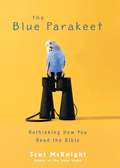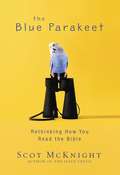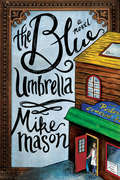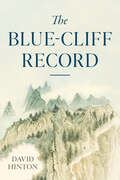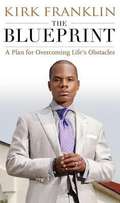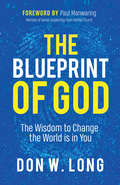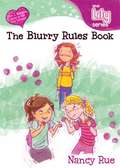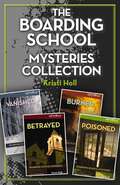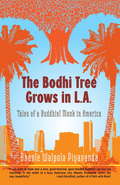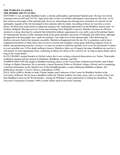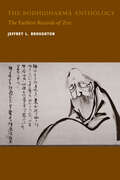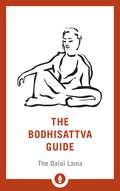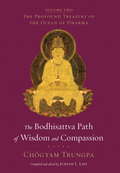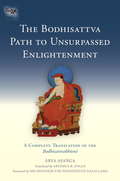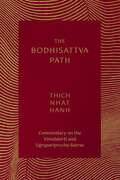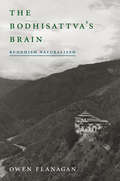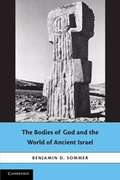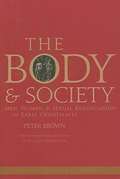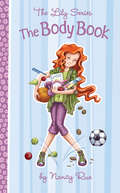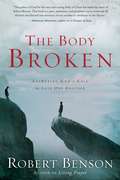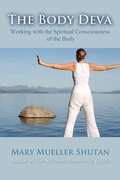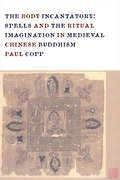- Table View
- List View
The Blue Parakeet: Rethinking How You Read the Bible
by Scot McKnight"Why Can’t I Just Be a Christian?”Parakeets make delightful pets. We cage them or clip their wings to keep them where we want them. Scot McKnight contends that many, conservatives and liberals alike, attempt the same thing with the Bible. We all try to tame it.McKnight’s The Blue Parakeet has emerged at the perfect time to cool the flames of a world on fire with contention and controversy. It calls Christians to a way to read the Bible that leads beyond old debates and denominational battles. It calls Christians to stop taming the Bible and to let it speak anew for a new generation.In his books The Jesus Creed and Embracing Grace, Scot McKnight established himself as one of America’s finest Christian thinkers, an author to be reckoned with.In The Blue Parakeet, McKnight again touches the hearts and minds of today’s Christians, this time challenging them to rethink how to read the Bible, not just to puzzle it together into some systematic theology but to see it as a Story that we’re summoned to enter and to carry forward in our day.In his own inimitable style, McKnight sets traditional and liberal Christianity on its ear, leaving readers equipped, encouraged, and emboldened to be the people of faith they long to be.
The Blue Parakeet: Rethinking How You Read the Bible
by Scot McknightWhy Can't I Just Be a Christian?" Parakeets make delightful pets. We cage them or clip their wings to keep them where we want them. Scot McKnight contends that many, conservatives and liberals alike, attempt the same thing with the Bible. We all try to tame it. McKnight's The Blue Parakeet has emerged at the perfect time to cool the flames of a world on fire with contention and controversy. It calls Christians to a way to read the Bible that leads beyond old debates and denominational battles. It calls Christians to stop taming the Bible and to let it speak anew for a new generation. In his books The Jesus Creed and Embracing Grace, Scot McKnight established himself as one of America's finest Christian thinkers, an author to be reckoned with. In The Blue Parakeet, McKnight again touches the hearts and minds of today's Christians, this time challenging them to rethink how to read the Bible, not just to puzzle it together into some systematic theology but to see it as a Story that we're summoned to enter and to carry forward in our day. In his own inimitable style, McKnight sets traditional and liberal Christianity on its ear, leaving readers equipped, encouraged, and emboldened to be the people of faith they long to be.
The Blue Ridge Romance Collection: Blue Ridge Sunrise, Honeysuckle Dreams, On Magnolia Lane (A Blue Ridge Romance)
by Denise HunterThree charming stories of misunderstandings and unexpected romance—Now available in one collection from the bestselling author of The Convenient Groom (now a beloved Hallmark Original movie)!Blue Ridge SunriseFormer free spirit Zoe Collins swore she’d never again set foot in Copper Creek or speak to the man who broke her heart. But return she must when her beloved Granny dies, leaving Zoe the family legacy—a peach orchard nestled at the base of the Blue Ridge Mountains.Honeysuckle DreamsBrady Collins is juggling full-time fatherhood with the booming auto repair business he runs out of his barn. His ex-wife's sudden death has shaken him, but the devastating news that follows leaves him reeling: Sam is not his biological son.On Magnolia LanePastor Jack McReady has secretly carried a torch for Daisy for two long years. She’s a member of his congregation and he fears she’ll never see him as more than a trusted counselor. Owner of the local flower shop, Daisy Pendleton is content with her small-town life, but she’d sure like someone to share it with. After several disastrous first dates, she’s about to give up—and then she finds a seemingly wonderful man online.
The Blue Umbrella
by Mike MasonWhen Zac Sparks's mother dies, he's sent to live in Five Corners with his cruel old Aunties. It isn't long before Zac knows something strange is going on. Five Corners is populated with weird characters--a midget butler, a girl who doesn't speak, a blind balloon seller, a mysterious singer, and the Aunties' father, Dada. Zac's first encounter with Dada is so terrifying that he faints dead away.The one bright spot is Sky Porter, a friendly soul who encourages Zac and shows him kindness. But Sky isn't what he seems either, and when Zac learns Sky's amazing secret he sees that this wonderful man may have a very dark side as well. Discovering that Dada is an evil magician who is intent on stealing the ultimate treasure, Zac knows that many lives are at stake, including his own.
The Blue-Cliff Record
by David HintonA once-in-a-generation translation of the definitive Ch&’an (Zen) koan collection from preeminent translator David Hinton.The Blue-Cliff Record, a collection of Ch&’an (Zen) koans stemming from the eleventh century, is a remarkable masterwork of classical Chinese literature, a philosophical text of profound power, and an active practice guide in use by Ch&’an and Zen Buddhists all over the world. Rendered with his trademark lyricism and philosophical rigor, this new edition from renowned translator David Hinton presents a whole new Blue-Cliff Record. Full of poetry, storytelling, and characters both zany and profound, Hinton&’s translation unveils the earthy insights of Ch&’an&’s original wisdom.Though it carries a reputation for impenetrable paradox, The Blue-Cliff Record was not meant to be a teaching tool understood only through long instruction from Zen masters. Rather, it is a finely crafted text intended to create a direct and immediate experience of awakening, a text that insists on the need to trust oneself rather than teachers for insight. Embracing this, Hinton&’s translation presents only the original koans and poems, free of the commentaries that usually shroud it. In doing so, he rekindles the provocative and illuminating fire of these one hundred classic koans.
The Bluebell Inn Romance Novels: Lake Season, Carolina Breeze, Autumn Skies (A Bluebell Inn Romance)
by Denise HunterLake SeasonWhen her parents die in a tragic accident, Molly Bennett and her siblings pull together to fulfill their parents&’ dream of turning their historic Bluebell, North Carolina, home back into an inn. Staying in town would be temporary, then they plan to sell the inn, and Molly can get back to chasing her own dreams.Adam Bradford (aka bestselling author Nathaniel Quinn) is a reclusive novelist. Desperate for inspiration as his deadline approaches, he travels to the setting of his next book, a North Carolina lake town. There, he meets his muse, a young innkeeper who fancies herself in love with his alter ego.Molly finds a long-lost letter in the walls of her inn, and she and Adam embark on a mission to find the star-crossed lovers and bring them closure. But Adam has secrets he isn&’t ready to share. Past and present collide as truths surface, and Molly and Adam must decide if love is worth trusting.Carolina BreezeRising Hollywood star Mia Emerson is looking for a safe place to land in the wake of a public breakup and scandal, and she finds it in the lake town of Bluebell--the location of her canceled honeymoon.Soon after her arrival, Mia meets Levi Bennett, who runs the inn along with his two younger sisters. Drawn to one another from the start, Mia trusts Levi to keep her location from the press, and Levi confides in Mia about the financial state of the inn—a secret he&’s been keeping from his sisters.When Mia and Levi discover an old journal that hints at a rare diamond necklace hidden in the inn, they set off on a treasure hunt to find the long-lost heirloom. What they don&’t expect to surface are feelings they thought were safely locked away.Autumn SkiesWhen a mysterious man turns up at Grace&’s family-run inn, it&’s instant attraction. But she&’s already got a lot on her plate: running the Bluebell Inn, getting Blue Ridge Outfitters off the ground, and coping with a childhood event she&’d thought was long past.A gunshot wound has resurrected the past for secret service agent Wyatt Jennings, and a mandatory leave of absence lands him in Bluebell. There he must try and come to grips with the crisis that altered his life forever.Grace needs experience for her new outfitters business, so when Wyatt needs a mountain guide, she&’s more than happy to step up to the plate. As their journey progresses, Grace soon has an elusive Wyatt opening up, and Wyatt is unwittingly drawn to Grace&’s fresh outlook and sense of humor.There&’s no doubt the two have formed a special bond, but will Wyatt&’s secrets bring Grace&’s world crashing down?&“Nobody does summer romance better than Denise Hunter.&” —JULIE LESSMAN, award-winning authorThree full-length romance novelsIncludes discussion questions for book clubs
The Blueprint
by Kirk FranklinSeven-time Grammy award-winning gospel artist Kirk Franklin's faith wasn't always as strong as it is today. His father abandoned his family; his mother constantly told Kirk that he was an unwanted child and left him to be adopted when he was four; his sister became a crack addict; he never saw a black man who was faithful in marriage. Despite his shaky foundation he found strength and success through his music and through God. In The Blueprint, Franklin will explain how, by communicating with life's architect, God, he learned to see hardships as necessary life propellants and moved on to become the bestselling gospel musician in recent history, as well as a devoted husband and loving father. This is not a step program, it's a lifelong journey. Franklin's real world words of wisdom will help guide you to:* Pursue your dreams without losing yourself in the chase. * Do some lifescaping to eliminate the "weeds" that hold you back. * Declare your life to be drama-free. * Get past your fears so you can live and love fully. * Pass the baton to future generations by leading by example.
The Blueprint of God: The Wisdom to Change the World is in You
by Don W. LongThe Blueprint of God helps individuals restore their identity as champions, ambassadors, and governing saints as being one with the Father. The Blueprint of God helps Christians to partner with the Father to manifest their dreams and create a compelling future for themselves and the people around them. Dreams coming true will have an eternal impact as well as a national impact. Don W. Long created this blueprint to help those become all that they were meant to be when they are able to restore their true identity as sons and daughters of God and realize that He left us in charge to take dominion, be fruitful and multiply. Within The Blueprint of God Christians are shown a blueprint connecting them to their destiny, dreams, and desires that are hidden inside of them, that part of who they are is uncovering their destiny, and so much more!
The Blurry Rules Book: It's a God Thing!
by Nancy RueThe Blurry Rules Book is all about ethics. Explain THAT to an 8- to 12-year-old girl! Author, Nancy Rue, approaches the subject by talking about those gray areas and hard-to-answer questions that aren't so clearly addressed in the Ten Commandments. Kids clearly understand "Thou shalt not kill", but what about "thou shalt not hate the guts of the girl who deliberately snubs you?" Sure "thou shalt not steal," but what if I catch somebody else doing it? There are no easy answers to questions or situations like these, but The Blurry Rules Book offers great advice about such issues. Young girls will discover that although there may not always be an easy answer or a concrete rule, there's always a God answer.
The Boarding School Mysteries Collection (Faithgirlz / Boarding School Mysteries)
by Kristi HollIn this four-eBook collection of Boarding School Mysteries, brought to you by Faithgirlz, readers meet super-sleuth Jeri McKane and her middle-school classmates at the Landmark School for Girls. Follow Jeri as she uses her head and heart and her trust in God to solve mysteries. Vanished: On the way home from a field trip, the Landmark School for Girls van, with the driver and six girls, disappears somewhere along the Two-Mile Stretch leading into town. Jeri McKane desperately searches for her missing friends, including her roommate Rosa. Betrayed: A blackmailer is victimizing Jeri McKane’s best friend, so Jeri uses her investigative abilities to discover who and why. As the threats become more serious---to her friend as well as herself---Jeri dares to confront real danger face-to-face. Poisoned: When several girls get sick after a birthday dinner, everyone assumes the cause is accidental food poisoning. However, after further outbreaks Jeri McKane suspects the poisonings are more sinister. Burned: When an “accidental” fire at the Landmark School turns out to be arson, Jeri McKane is determined to discover who is setting fires---and why.
The Bodhi Tree Grows in L.A.: Tales of a Buddhist Monk in America
by Bhante Walpola PiyanandaTruth is regularly stranger than fiction for the abbot of a Buddhist temple in the far-from-tranquil inner city of Los Angeles, California. Whether he is talking a dangerously unbalanced man out of buying a gun, confronting a naked woman in his meditation hall, or helping gamblers reform, Bhante Walpola Piyananda demonstrates that every experience can be an opportunity for learning and appreciating the Buddha's teachings. Bhante Piyananda also reflects on social and political issues such as the racial tension in his neighborhood after the Rodney King trial and the destruction of the Bamiyan Buddha statues in Afganistan.
The Bodhicaryavatara: A Guide to the Buddhist Path to Awakening (World's Classics)
by Kate Crosby Andrew Skilton ŚāntidevaWritten in India in the early eighteenth century AD, Santideva'sBodhicaryavatara became one of the most popular accounts of the Buddhist spiritual path. Important as a manual of training among Mahayana Buddhists, especially in the Tibetan Buddhist tradition, this text continues to be used as the basis for teaching by modern Buddhist teachers. <p><p>This new translation from the original language provides detailed annotations explaining allusions and technical references. The Introductions set Santideva's work in context, and for the first time explain its structure.
The Bodhidharma Anthology: The Earliest Records of Zen
by Jeffrey L. BroughtonIn the early part of this century, the discovery of a walled-up cave in northwest China led to the retrieval of a lost early Ch'an (Zen) literature of the T'ang dynasty (618-907). One of the recovered Zen texts was a seven-piece collection, the Bodhidharma Anthology. Of the numerous texts attributed to Bodhidharma, this anthology is the only one generally believed to contain authentic Bodhidharma material.Jeffrey L. Broughton provides a reliable annotated translation of the Bodhidharma Anthology along with a detailed study of its nature, content, and background. His work is especially important for its rendering of the three Records, which contain some of the earliest Zen dialogues and constitute the real beginnings of Zen literature.The vivid dialogues and sayings of Master Yuan, a long-forgotten member of the Bodhidharma circle, are the hallmark of the Records. Master Yuan consistently criticizes reliance on the Dharma, on teachers, on meditative practice, and on scripture, all of which lead to self-deception and confusion, he says. According to Master Yuan, if one has spirit and does not seek anything, including the teachings of Buddhism, then one will attain the quietude of liberation. The boldness in Yuan's utterances prefigures much of the full-blown Zen tradition we recognize today.Broughton utilizes a Tibetan translation of the Bodhidharma Anthology as an informative gloss on the Chinese original. Placing the anthology within the context of the Tun-huang Zen manuscripts as a whole, he proposes a new approach to the study of Zen, one that concentrates on literary history, a genealogy of texts rather than the usual genealogy of masters.
The Bodhisattva Guide: A Teaching On The Wisdom Section Of Shantideva's Guide To The Bodhisattva Way Of Life (Shambhala Dragon Editions Ser.)
by Padmakara Translation Group H.H. the LamaThe Dalai Lama's indispensable commentary on a beloved Tibetan Buddhist text--now in the Shambhala Pocket Library series.One of the most beloved of all Buddhist texts, The Way of the Bodhisattva is a practical guide to generating the qualities of love, compassion, generosity, and patience. In this commentary on key sections of the text, the Dalai Lama shows how any of us can develop a truly “good heart,” and why aspiring toward the happiness and enlightenment of others is central to any genuinely spiritual path. His Holiness’s profound wisdom—the result of a lifetime of practice and study—shines brilliantly throughout this extraordinary book. This book was previously published with the title For the Benefit of All Beings.
The Bodhisattva Path of Wisdom and Compassion: The Profound Treasury of the Ocean of Dharma, Volume Two (volume #2)
by Chogyam Trungpa Judith L. LiefThe Profound Treasury of the Ocean of Dharma represents meditation master Chögyam Trungpa's greatest contribution to Western Buddhism. This three-volume collection presents in lively, relevant language the comprehensive teachings of the Tibetan Buddhist path of the hinayana, mahayana, and vajrayana. This work will resonate with new students of Buddhism as well as the most senior students. The second volume, The Bodhisattva Path of Wisdom and Compassion, presents the bodhisattva teachings of the mahayana. At this point, having trained and seen the benefits of looking within, the student begins to shift their focus outward to the broader world. Formal entry into the mahayana occurs with taking the bodhisattva vow. Mahayana practitioners dedicate themselves to the service of all sentient beings, aspiring to save them from sorrow and confusion, and vowing to bring them to perfect liberation. This stage of the path emphasizes the cultivation of wisdom through the view and experience of emptiness, or shunyata, in which all phenomena are seen to be unbounded, completely open, ungraspable, and profound. From the ground of shunyata, compassionate activity is said to arise naturally and spontaneously. In addition to mindfulness and awareness, the mahayanist practices lojong, or "mind training," based on the cultivation of the paramitas, or "transcendent virtues": generosity, discipline, patience, exertion, meditation, and prajna, or "knowledge." As a component of lojong, tonglen, or "sending and taking," is practiced in order to increase maitri, or loving-kindness. Other topics covered in detail in this volume include bodhichitta, skillful means, Buddha nature and basic goodness, Madhyamaka, the ten bhumis, the three kayas, and more.
The Bodhisattva Path to Unsurpassed Enlightenment: A Complete Translation of the Bodhisattvabhumi
by Dalai Lama Artemus B. Engle Asanga?rya Asanga's Bodhisattvabh?mi, or The Stage of a Bodhisattva, is the Mah?y?na tradition's most comprehensive manual on the practice and training of bodhisattvas--by the author's own account, a compilation of the full range of instructions contained in the entire collection of Mah?y?na sutras. A classic work of the Yog?c?ra school, it has been cherished in Tibet by all the historical Buddhist lineages as a primary source of instruction on bodhisattva ethics, vows, and practices, as well as for its summary of the ultimate goal of the bodhisattva path--supreme enlightenment.Despite the text's seminal importance in the Tibetan traditions, it has remained unavailable in English except in fragments. Engle's translation, made from the Sanskrit original with reference to the Tibetan translation and commentaries, will enable English readers to understand more fully and clearly what it means to be a bodhisattva and practitioner of the Mah?y?na tradition.
The Bodhisattva Path: Commentary on the Vimalakirti and Ugrapariprccha Sutras
by Thich Nhat HanhLearn about the bodhisattva ideal—the capacity to see the potential for awakening in everyone and aspire to help them along their path—with new commentaries on early Mahayana sutras from Zen Master Thich Nhat Hanh, the monk Time magazine calls "the father of mindfulness."Based on a three-month retreat given by Ven. Thich Nhat Hanh in the winter of 1991, this book gives an historical account of the emergence of the bodhisattva ideal during the first century CE, together with Thich Nhat Hanh's previously unpublished commentaries on two early Mahayana sutras—the Ugraparipṛccha Sutra (The Questions of the Householder Ugra) and the Vimalakīrti-nirdeśa Sutra (The Instructions of Vimalakīrti). About 150 years after the death of the historical Buddha, Buddhism had begun to develop into many separate schools, in which many monks came to prioritize their own personal liberation in their teaching and practice, while making Buddhism into a series of doctrines that served their own school. They came to live in a way that was cut off from other schools and from laypeople and saw laypeople as there primarily to make offerings and support the monks, not as practitioners who could also benefit fully from the Buddha&’s teachings. Consequently, around the first century CE, there arose among lay and monastic practitioners the desire to popularize Buddhism and bring it out of the ivory tower and back in touch with life in the world, as it had been in the time of the Buddha. From this movement sprang the Mahayana path, which aimed to provide the deepest wellsprings of Buddhist thought to all people, regardless of their social background. Central to the Mahayana teachings is the idea of bodhicitta (the mind of love), which was personified in the bodhisattva, who sees the potential for enlightenment in everyone and vows to help them on their path to awakening.Soon Mahayana sutras began to appear, encouraging practitioners to develop the qualities of a bodhisattva in themselves. The Ugraparipṛccha Sutra counsels students on the bodhisattva path, giving practical instructions on how to help others suffer less. The Vimalakīrti-nirdeśa Sutra focuses on bringing the deepest teachings of Buddhism to ordinary people, with teachings on the ultimate dimension and Buddhist ethics. With his insightful commentary on these two important sutras, Ven. Thich Nhat Hanh continues the inclusive spirit of the early Mahayana practitioners.
The Bodhisattva's Brain: Buddhism Naturalized
by Owen FlanaganCan there be a Buddhism without karma, nirvana, and reincarnation that is compatible with the rest of knowledge?If we are material beings living in a material world—and all the scientific evidence suggests that we are—then we must find existential meaning, if there is such a thing, in this physical world. We must cast our lot with the natural rather than the supernatural. Many Westerners with spiritual (but not religious) inclinations are attracted to Buddhism—almost as a kind of moral-mental hygiene. But, as Owen Flanagan points out in The Bodhisattva's Brain, Buddhism is hardly naturalistic. In The Bodhisattva's Brain, Flanagan argues that it is possible to discover in Buddhism a rich, empirically responsible philosophy that could point us to one path of human flourishing. Some claim that neuroscience is in the process of validating Buddhism empirically, but Flanagan's naturalized Buddhism does not reduce itself to a brain scan showing happiness patterns. "Buddhism naturalized," as Flanagan constructs it, offers instead a fully naturalistic and comprehensive philosophy, compatible with the rest of knowledge—a way of conceiving of the human predicament, of thinking about meaning for finite material beings living in a material world.
The Bodies of God and the World of Ancient Israel
by Benjamin D. SommerIn The Bodies of God and the World of Ancient Israel, Benjamin D. Sommer investigates the notion of a deity's body and self in ancient Israel, Canaan, and Mesopotamia. He uncovers a lost ancient Near Eastern perception of divinity according to which an essential difference between gods and humans was that gods had more than one body and fluid, unbounded selves. Though the dominant strains of biblical religion rejected it, a monotheistic version of this theological intuition is found in some biblical texts. Later Jewish and Christian thinkers inherited this ancient way of thinking; ideas such as the sefirot in kabbalah and the trinity in Christianity represent a late version of this theology. This book forces us to rethink the distinction between monotheism and polytheism, as this notion of divine fluidity is found in both polytheistic cultures (Babylonia, Assyria, Canaan) and monotheistic ones (biblical religion, Jewish mysticism, Christianity), whereas it is absent in some polytheistic cultures (classical Greece). The Bodies of God and the World of Ancient Israel has important repercussions not only for biblical scholarship and comparative religion but for Jewish-Christian dialogue.
The Body And Society: Men, Women, and Sexual Renunciation in Early Christianity; Twentieth Anniversary Edition With A New Introduction
by Peter BrownFirst published in 1988, Peter Brown's The Body and Society was a groundbreaking study of the marriage and sexual practices of early Christians in the ancient Mediterranean and Near East. Brown focuses on the practice of permanent sexual renunciation-continence, celibacy, and lifelong virginity-in Christian circles from the first to the fifth centuries A. D. and traces early Christians' preoccupations with sexuality and the body in the work of the period's great writers. The Body and Society questions how theological views on sexuality and the human body both mirrored and shaped relationships between men and women, Roman aristocracy and slaves, and the married and the celibate. Brown discusses Tertullian, Valentinus, Clement of Alexandria, Origen, Constantine, the Desert Fathers, Jerome, Ambrose, and Augustine, among others, and considers asceticism and society in the Eastern Empire, martyrdom and prophecy, gnostic spiritual guidance, promiscuity among the men and women of the church, monks and marriage in Egypt, the ascetic life of women in fourth-century Jerusalem, and the body and society in the early Middle Ages. In his new introduction, Brown reflects on his work's reception in the scholarly community.
The Body Book
by Nancy RueThe ultimate resource for the "girl stuff" coming your way.The transition from girl to teenager makes the tween years a time of great change--especially in the body department! This unique and creative book for girls ages 7-11 answers the most common questions girls have during this often confusing and overwhelming stage in life. The Body Book gives girls the scoop on everything from body changes and cramps to diet and exercise in an inviting and conversational manner.The Body Book not only offers accurate, up-to-date information on personal issues tween girls experience but also shares it from a positive biblical perspective.
The Body Broken: Answering God's Call to Love One Another
by Robert BensonA lifelong Christian and seeker, Robert Benson has shared the prayers, rituals, conversations, and practices of many different denominations. His broad range of ecumenical experiences have led to moments of great joy and deep fellowship, but they have also opened his eyes to the misunderstanding and the intolerance that constantly threaten to dismember the whole Body of Christ. The Body Broken is an honest and moving meditation on the Gospel imperative to love one another as brothers and sisters, even as we choose to live and express our faith in differing ways.Benson writes longingly about the things of the faith that bind us together and gracefully about the things that keep us apart. He recounts his own journey from Nazarene to Methodist to Episcopalian and introduces us to the people and the differing expressions of faith he encountered along the way. We meet ordinary folk, including Benson's family and childhood friends, as well as legendary religious thinkers as Henri Nouwen. Some of the stories--particularly the ones about his own brother's suicide--are heartbreakingly painful; others bring to light the joy and grace of Christian love as found in acts of common worship and compassion. Although Benson acknowledges that there are--and always will be--very real differences in the ways that Christians seek to live out their faith, he reminds us of the essential beliefs that we share about God and our common dependency on God's mysterious mercy and grace, even as we look for God as through a glass darkly.In poetic prose that is reminiscent of the writing of Frederick Buechner and Annie Dillard, Benson illuminates, with wit and wisdom and humility and passion, one of the most difficult challenges that face the Church. The Body Broken is a powerful, important examination of the intolerance and divisiveness that have become an all too familiar part of the Church and a gentle, poignant call for a Christian community that embraces a spirit of love and unity even as it honors our differences.
The Body Deva: Working with the Spiritual Consciousness of the Body
by Mary Mueller ShutanA step-by-step guide to accessing the body deva, your body consciousness, for physical, emotional, mental, and spiritual healing • Details how to dialogue with the consciousness of your body to heal a variety of issues, from physical pains to limiting beliefs • Explains how our bodies, consciousness, and spirit are interconnected and how our physical bodies hold emotions and past traumas • Explores how to work with the body deva to heal spiritual patterns through the physical body, including techniques of ancestral healing, past life healing, and karmic resolution We are not our pain or our disease, nor are we defined by our limitations, restrictions, or the labels given to us. We are a whole body, a consciousness, and a spiritual being. As a holistic, interconnected being, our emotions, beliefs, physical pain, past traumas, and even imbalances created through spiritual issues are held within our physical form. By accessing them through the physical body with the body deva--the spiritual consciousness of our human body--we can heal the continuum of mind, body, and spirit. Understanding this is the true key to healing. In this step-by-step guide to understanding and working with the body deva, the consciousness of your body, Mary Mueller Shutan explains how our bodies hold the traumatic energies, emotions, physical issues, and restricting beliefs that cause us pain and feelings of disconnection. She details how to make contact and dialogue with your body deva to heal a variety of issues, from physical pains to ancestral and past life patterns to limiting ideas about what we can accomplish in this world. By working with the body deva, she shows how we can discover the reasons why our pain, beliefs, or imbalances developed and resolve them to heal mind, body, and spirit, every layer of our being. She explores how to work with the archetypes, labels, limiting beliefs, and myths that underlie our unique history and reasons for being. Shutan also examines how to work with the body deva to heal spiritual patterns through the physical body, including techniques of ancestral healing, past life healing, and karmic resolution. By learning to dialogue with the body deva, you can understand who you are on the deepest levels. You can learn why your pain and imbalances came to be and what lies unhealed within you. You can evolve beyond the limitations and restrictions in your body and your life and evolve into greater health, connection, joy, and consciousness.
The Body Incantatory: Spells and the Ritual Imagination in Medieval Chinese Buddhism
by Paul CoppIn centering its analysis on the Chinese material culture of deeply embodied forms of Buddhist ritual, The Body Incantatory reveals histories of practice--and logics of practice--that have until now remained hidden
The Body Incantatory: Spells and the Ritual Imagination in Medieval Chinese Buddhism (The Sheng Yen Series in Chinese Buddhist Studies)
by Paul CoppWhether chanted as devotional prayers, intoned against the dangers of the wilds, or invoked to heal the sick and bring ease to the dead, incantations were pervasive features of Buddhist practice in late medieval China (600–1000 C.E.). Material incantations, in forms such as spell-inscribed amulets and stone pillars, were also central to the spiritual lives of both monks and laypeople. In centering its analysis on the Chinese material culture of these deeply embodied forms of Buddhist ritual, The Body Incantatory reveals histories of practice—and logics of practice—that have until now remained hidden.Paul Copp examines inscribed stones, urns, and other objects unearthed from anonymous tombs; spells carved into pillars near mountain temples; and manuscripts and prints from both tombs and the Dunhuang cache. Focusing on two major Buddhist spells, or dhāraṇī, and their embodiment of the incantatory logics of adornment and unction, he makes breakthrough claims about the significance of Buddhist incantation practice not only in medieval China but also in Central Asia and India. Copp's work vividly captures the diversity of Buddhist practice among medieval monks, ritual healers, and other individuals lost to history, offering a corrective to accounts that have overemphasized elite, canonical materials.
